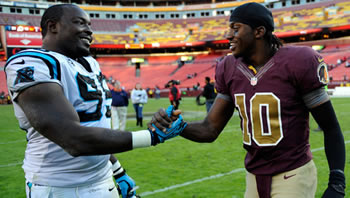Difference between Sportsmanship and Gamesmanship
Key Difference: Sportsmanship refers to ‘fair and generous behavior or treatment of others in a sporting contest.’ Sportsmanship indicates that the sport or activity is enjoyed for the sake of the sport or activity. Gamesmanship is based on the belief that winning is the only thing that matters and that the game must be won at any cost, even if that cost includes some unethical practices.
 The terms sportsmanship and gamesmanship describe the nature and behavior of a person as they take part in sports. Sports are competitive by nature, but how a person reacts in a challenging and competitive situation can tell one a lot them. Things like how they react to a situation where they are winning, do they gloat? Or when they are losing; are they sore losers? These things can let one know a lot about a person in general, i.e. such as are they good natured or mean spirited.
The terms sportsmanship and gamesmanship describe the nature and behavior of a person as they take part in sports. Sports are competitive by nature, but how a person reacts in a challenging and competitive situation can tell one a lot them. Things like how they react to a situation where they are winning, do they gloat? Or when they are losing; are they sore losers? These things can let one know a lot about a person in general, i.e. such as are they good natured or mean spirited.
Sportsmanship refers to ‘fair and generous behavior or treatment of others in a sporting contest.’ Sportsmanship indicates that the sport or activity is enjoyed for the sake of the sport or activity. It indicates the objective was not only to win the game, but rather to have fun doing it. The sport is played for fun and enjoyment, and not with the sole purpose of winning. The sport is designed to have a winner or a loser, but that does not mean that one should lose their integrity.
Sportsmanship indicates virtues such as fairness, self-control, courage, and persistence. In sportsmanship, the emphasis is on treating the opponent with respect and fairness, and that they play the game ethically by following the rules, and let the best man will. A player who does all of this is considered a ‘good sport’, whereas a person who does not is considered a ‘bad sport.’
Gamesmanship, on the other hand, is the opposite. It indicates that the sport or game is played with a single objective, which is to win. Gamesmanship is based on the belief that winning is the only thing that matters and that the game must be won at any cost, even if that cost includes some unethical practices such as cheating or psychologically daunting the opponent. A person who displays gamesmanship will do anything in their power to win, because to them winning is the only objective.
 There are three common techniques of gamesmanship:
There are three common techniques of gamesmanship:
- Breaking the flow of an opponent's play
- Causing an opponent to take the game less seriously or to overthink his or her position
- Intentionally making a "mistake" which gains an advantage over an opponent
Players are generally expected to behave in a good sportsman like manner. Players that do engage in gamesmanship behavior are often referred to as ‘bad sport’. Players who do not adhere to sportsman like behavior run the risk of being penalized or being cited for their behavior. If a player constantly acts in a gamesman like behavior, they run the risk of being banned from sporting events, which may ruin their career.
Comparison between Sportsmanship and Gamesmanship:
|
|
Sportsmanship |
Gamesmanship |
|
Definition (Oxford Dictionaries) |
Fair and generous behaviour or treatment of others, especially in a sporting contest. |
The art of winning games by using various ploys and tactics to gain a psychological advantage. |
|
Virtues |
fairness, self-control, courage, and persistence |
Win at any cost necessary, including cheating or making ‘honest mistakes’. |
|
Behavior |
Proper consideration for fairness, ethics, respect, and a sense of fellowship with one's competitors |
Breaking the flow of an opponent's play Causing an opponent to take the game less seriously or to overthink his or her position Intentionally making a "mistake" which gains an advantage over an opponent |
|
Related Terms |
A player who does all of this is considered a ‘good sport’, whereas a person who does not is considered a ‘bad sport.’ |
A player who does all of this is considered a ‘bad sport’, whereas a person who does not is considered a ‘good sport’. |
|
Rule |
Treat others as you would like to be treated. |
Pushing the rules to the limit without getting caught, using whatever dubious methods possible to achieve the desired end |
Reference: Oxford Dictionaries (Sportsmanship and Gamesmanship), Wikipedia (Sportsmanship and Gamesmanship), Word Pandit, MHSAA Image Courtesy: panthers.com, digopaul.com









Add new comment